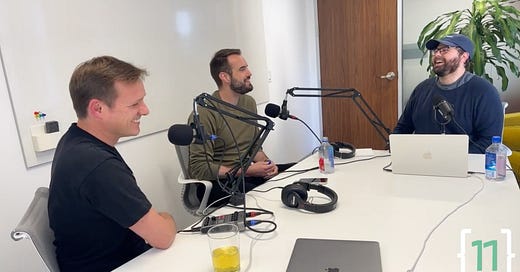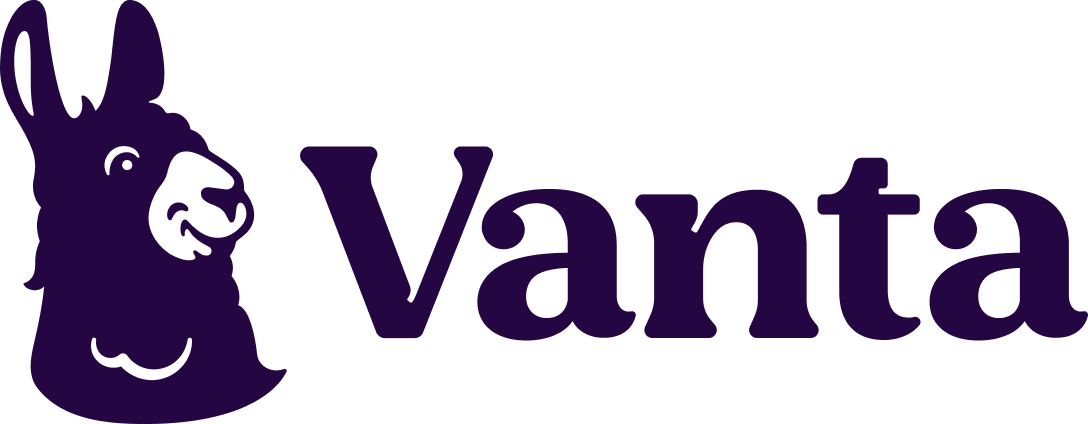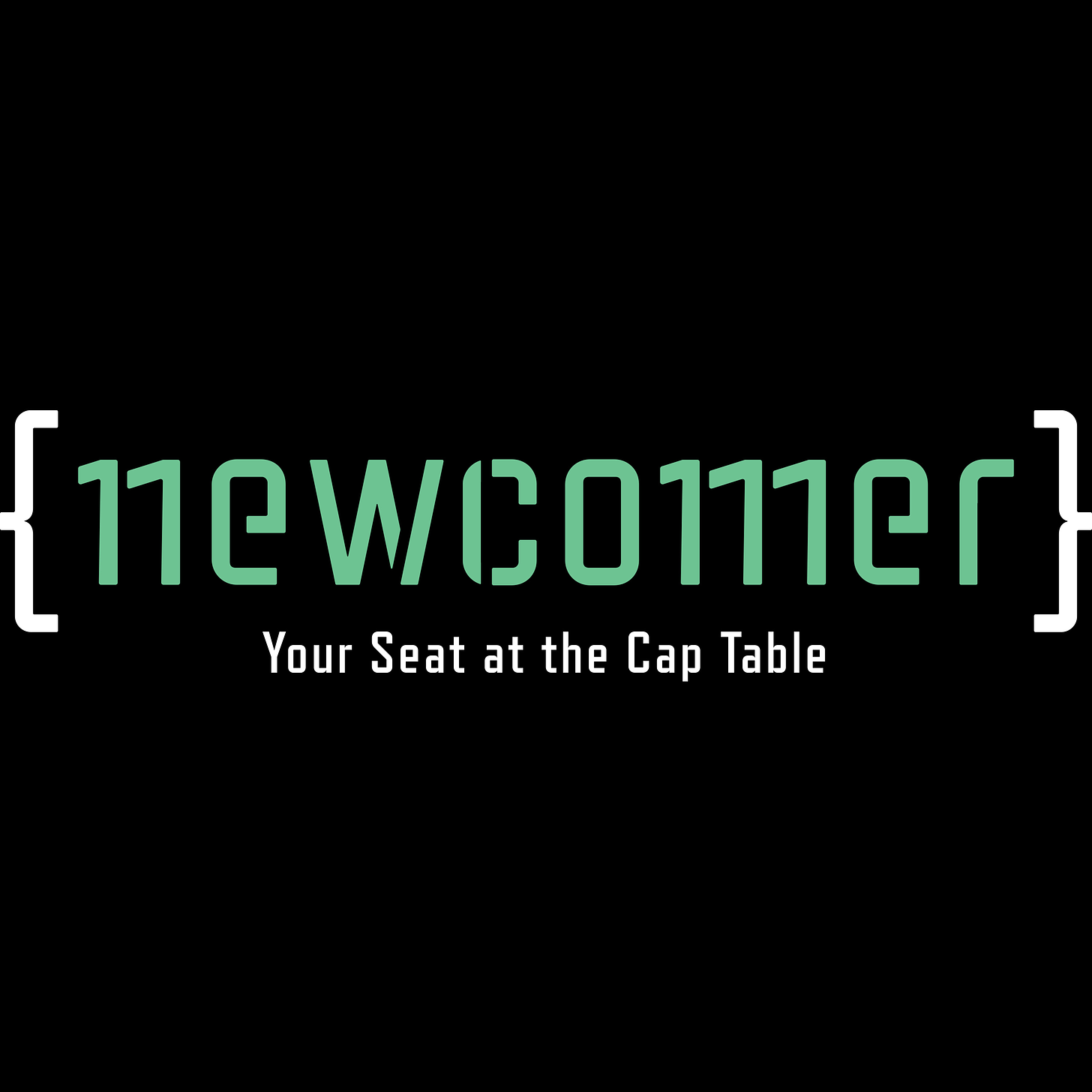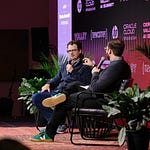I caught up with Substack co-founders
and at Substack’s office in San Francisco last week. They’re fresh off raising a community fundraising round and launching their social network Notes.I wrote in March about my decision to invest $5,000 in Substack’s fundraising round, even though the company revealed1 that it had negative revenue in 2021:
I’m already compromised when it comes to Substack. They’ve made my job possible. And while I already have plenty of financial exposure to Substack’s performance just by dint of running my business on Substack’s platform, I’m eager to have a chance to show my support.
So this is the rare — hopefully singular — interview where I can’t claim true editorial independence. I’m compromised on this one. Still, I think you’ll find it an informative and entertaining conversation. I’m able to bring my perspective as a Substack writer to the conversation and I can’t help but fish for drama and news.
This episode of Newcomer is brought to you by Vanta
Security is no longer a cost center — it’s a strategic growth engine that sets your business apart. That means it’s more important than ever to prove you handle customer data with the utmost integrity.
But demonstrating your security and compliance can be time-consuming, tedious, and expensive. Until you use Vanta.
Vanta’s enterprise-ready Trust Management Platform empowers you to:
Centralize and scale your security program
Automate compliance for the most sought-after frameworks, including SOC 2, ISO 27001, and GDPR
Earn and maintain the trust of customers and vendors alike
With Vanta, you can save up to 400 hours and 85% of costs. Win more deals and enable growth quickly, easily, and without breaking the bank.
For a limited time, Newcomer listeners get $1,000 off Vanta. Go to vanta.com/newcomer to get started.
In our conversation, I asked McKenzie and Best about Twitter’s one-sided war with Substack. Elon Musk has at times throttled links to Substack. It is impossible to imbed tweets in Substack posts anymore.
Adding some intrigue to the tensions, Andreessen Horowitz, Substack’s largest outside investor, is an investor in Musk’s Twitter.
And, Musk actually long ago hired McKenzie, a former PandoDaily reporter, to write for Tesla.
“I try to think about Elon as little as possible,” McKenzie said in our conversation at Substack’s office. “What we’re trying to do here is not build the anti-Twitter or build the anti-Instagram or anything like that. We’re trying to build the first Substack. The vision for what we think it can become is an amazing, beautiful thing and it’s bigger and more important than social media.”
McKenzie acknowledged that “arguably Twitter is trying to kill Substack.”
I asked about newsletter godfather Ben Thompson’s critique of Substack’s community round in his newsletter.
Thompson wrote in April:
We know that valuation because Substack asked its writers to fund a round at the same $650 million post-money valuation it achieved in 2021, despite the fact the company failed to raise money last year; the company never released its 2022 financials.
Frankly, I think this request was shameful: Substack has rightly earned the affection of a lot of writers by providing them with a new way to earn money, and of course those writers want Substack to succeed. Keeping such a lofty valuation, though, is effectively asking for a donation from an audience that almost by definition doesn’t know any better. That doesn’t seem very writer friendly! Nor, for that matter, does this fight with Twitter. Again, I think this is a product bet that makes a lot of sense: Substack needs to take big swings if it’s ever going to reach its valuation. Writers, though, who need Twitter’s distribution, didn’t sign up for this fight; they are simply stuck in the middle.
We also talked about Best’s botched podcast interview with The Verge’s Nilay Patel. In the interview (here’s a link to the key exchange), Patel hammered Best on Substack’s stance on blocking overt racism on Notes. In that interview, Best declined to say that Substack would ban particular objectionable racist comments from the platform unilaterally.
In my conversation with him, Best continued to oppose “centralized censorship” on Substack’s platform. And he doubled-down on his answer, saying that he had “basically the same answer.”
Best said, “We do have a content policy. It allows a lot of stuff we don’t like. It bans only very extreme things. If people are putting things that are against the overall content policy, they are taken down by us. However, that allows a lot of stuff that we find very objectionable. Then we try to build a system that puts people in control of what they see and who they interact with.”
As should be pretty obvious from the conversation, I think that if Substack Notes is successful, it will actually be much more curated than many other social networks. Writers want to give their readers a premium, elevated experience — not just a platform that does the bare minimum of content moderation. So I’m optimistic over time that Substack will find ways to empower writers to curate the platform. Even though Substack often finds itself talking about free speech and tough moderation decisions, in many ways what the company has built is a system where writers are given the power to moderate the platform themselves.
The last thing I’ll tease from the conversation is that the Substack founders no longer come off as diametrically opposing to supporting advertising. Judge their answer for yourself.
In the conversation we name-dropped a bunch of newsletters and Substack writers, including
Give it a listen.
















Share this post